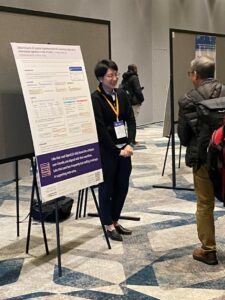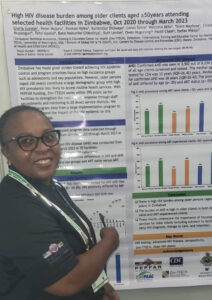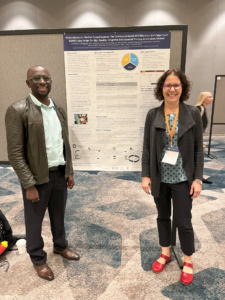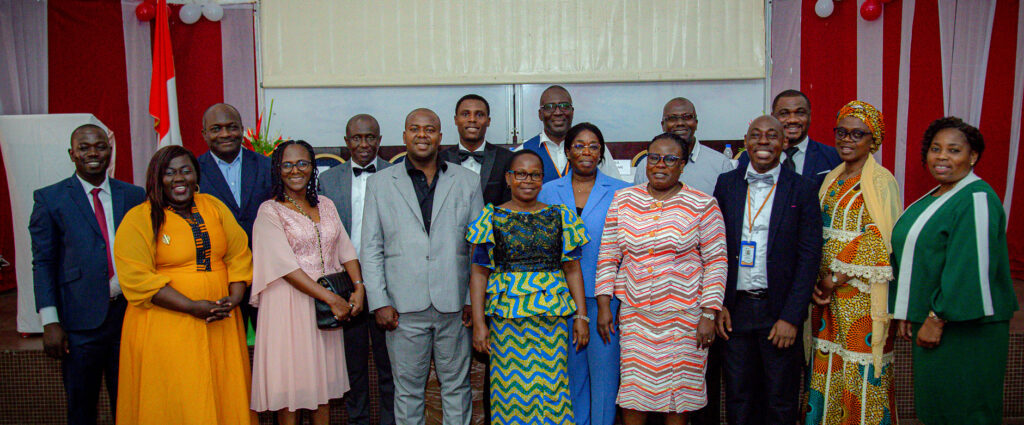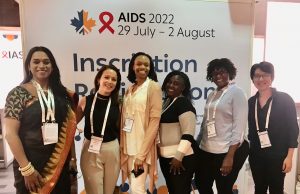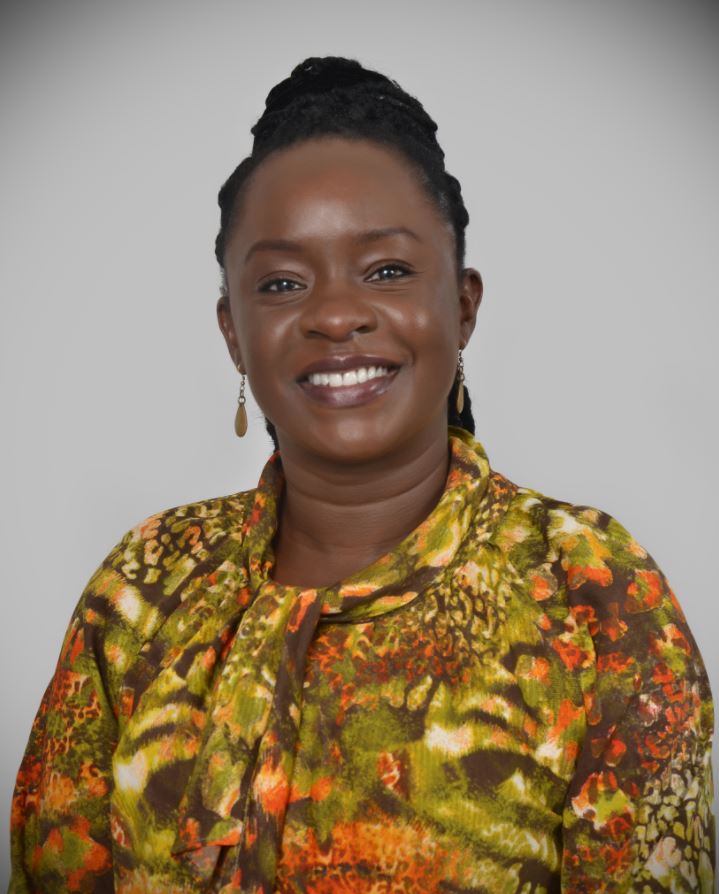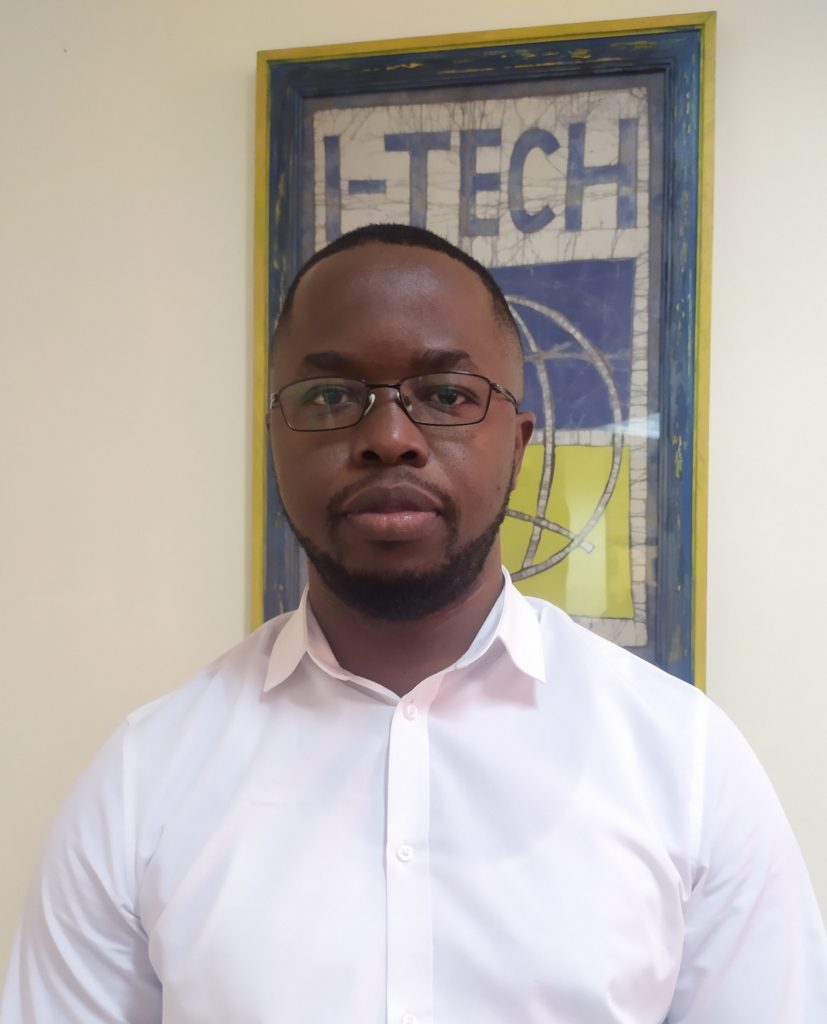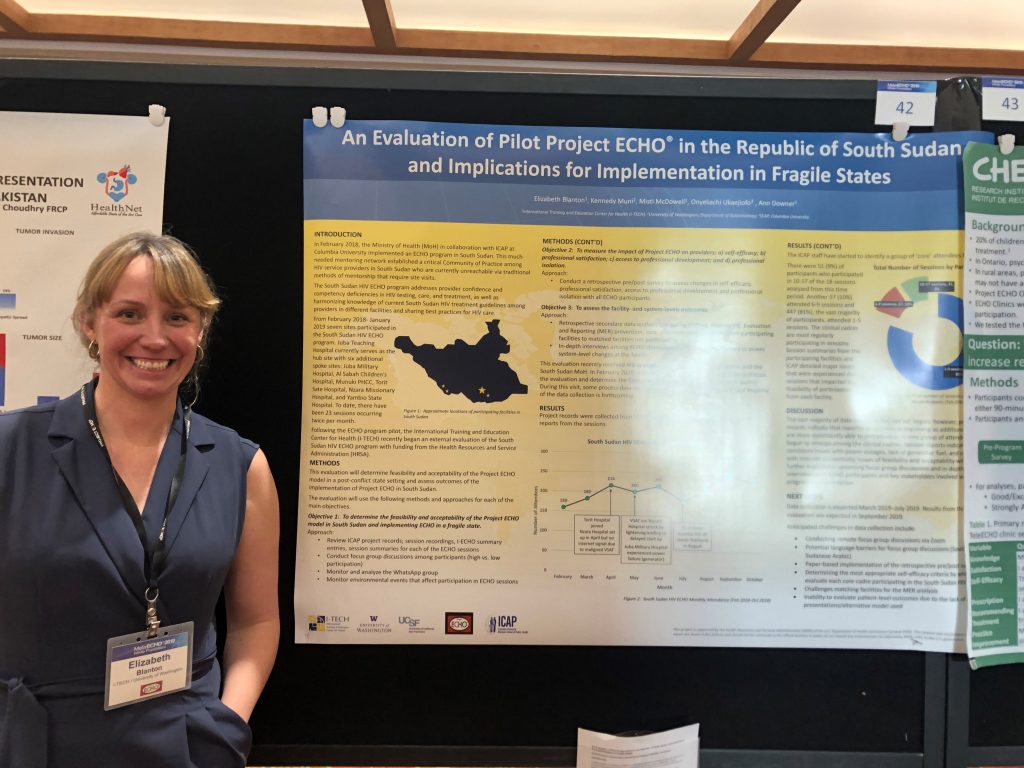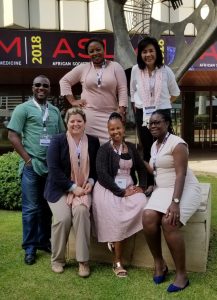
The International AIDS Society (IAS) hosted the 25th International AIDS Conference on 22–26 July 2024 in Munich, Germany, and virtually. The theme this year was “put people first” to emphasize the importance of “thinking of solutions from the point of view of those most affected.” The conference brings together HIV researchers and experts for presentations and discussions on a wide range of HIV- and AIDS-related topics.
This year, representatives from the International Training and Education Center for Health (I-TECH) presented findings from I-TECH-supported programs in Côte d’Ivoire and Ukraine:
Côte d’Ivoire
- “Facilities with quality improvement projects in Côte d’Ivoire show better outcomes for pediatric viral load suppression in children and adolescents with HIV” Authors: MacLachlan E, Gnogoué C, Krou Danho N, Van Osdale M*, Leunkeu Koffi E, Ehouman S, Diokouri Lognon A, Kouamé L, Samba M, Ehui E, Ngulefac J, Perlman J, Feldacker C, Abiola N.
Ukraine
- “Impact of the War in Ukraine on Client Access to HIV-Related Healthcare Services: A Qualitative Study” Authors: Shapoval A*, Barsukova A, Shvab M, Puttkammer NH, Vitruk O, Ihnatyuk A, Mcdowell MR, Collins PY, Hetman L
- “Human Centered Design during War: Case Study of the CASI-Plus mHealth Tool to Optimize HIV Index Testing in Ukraine” Authors: Puttkammer N, Germanovich M, Dunbar B, Hubashova A, Melnychuk R, Golden M, Flowers J, Hetman L, Legkostup L*, Namaya A, Nesterova O
Additionally, representatives from I-TECH India, PLC, and the Zimbabwe Technical Assistance, Training, and Education Center for Health (Zim-TTECH)—two of I-TECH’s partner network organizations—as well as their program partners presented findings from I-TECH-supported programs being implemented in India and Zimbabwe:
India
- “Bridging the Gap: Integrating Mental Health Screening into Routine HIV Care at Anti-Retroviral Treatment Center in Delhi, India” Authors: Anuradha S*, Goyal M, Singh S, Kataria S
- “Integrative Health: A Unified Approach to Cardiovascular Diseases, Hypertension, Diabetes, and HIV Services at Anti-Retroviral Treatment Center in Delhi, India” Authors: Anuradha S, Goyal M*, Singh S, Kataria S
Zimbabwe
- “Private-public partnership supporting sexually exploited minors and young women selling sex to launch microenterprises: lessons learned from Enhanced economic strengthening implementation within DREAMS in Zimbabwe” Authors: Ncube J*, Moyo P, Nyakuwa S, Matandirotya T, Mashapa R, Sibanda L, Gonese G, Murungu J, Mahaka I, Makunike B, Sola T, Ncube G, Mharadze T, Malaba R, Korn AK, Thomson KA, Wiktor S
- “Facilitating Safe Disclosure of Key Population Identities to Optimize HIV Differentiated Service Delivery in Harare, Zimbabwe in Harare, 2022-2023” Author: Hera C*, Moyo P, Muchemwa C, Nyakuwa S, Murungu J, Mahaka I, Mushangwe B, Gonese G, Makunike B, Sola T, Mharadze T, Malaba R, Cham HJ, Thomson K, Wiktor S, Chidovi E
- “No Means No: lessons learned implementing the sexual violence prevention curriculum for girls 10-14 years in Matabeleland North Province, Zimbabwe” Authors: Ntini P*, Sibanda L, Mashapa R, Gonese G, Mharadze T, Mandisarisa J, Mungwari P, Mpofu F, Makuyana R, Ndlovu M, Mutseta M, Ncube G, Bertman V, Krumpholz L, Korn A, Thomson K, Makunike B, Wiktor S
- “Prioritizing advanced HIV disease screening for treatment interruption in PLHIV: Early learnings from implementation of new guidelines in Zimbabwe” Authors: Dhliwayo R*, Dziva L, Ngwenya T, Mupanguri C, Mushangwe B, Gonese G, Apollo T, Mugurungi O, Maphosa T, Cham HJ, Thomson K, Wiktor S, Makunike-Chikwinya B
- “Collaborative quality improvement activities strengthened viral load sample collection in Zimbabwe’s Clinic-Lab Interface Initiative” Authors: Katekwe RR*, Makunike – Chikwinya B, Gonese G, Petracca F, Wiktor S, Bangani Z, McKinney B, Govha E, Vere L, Yao K
- “ZAZIC Consortium at 10 Years: Do Mature Voluntary Medical Male Circumcision Programs Maintain Client Safety?” Authors: Museza V*, Masimba LCT, Gwenzi F, Gavhera J, Makunike BC, Gonouya P, Holec MM, Barnhart S, Feldacker C, Xaba S, Madoda T
Note: Bolded names represent I-TECH authors and an asterisk (*) indicates the presenting author
